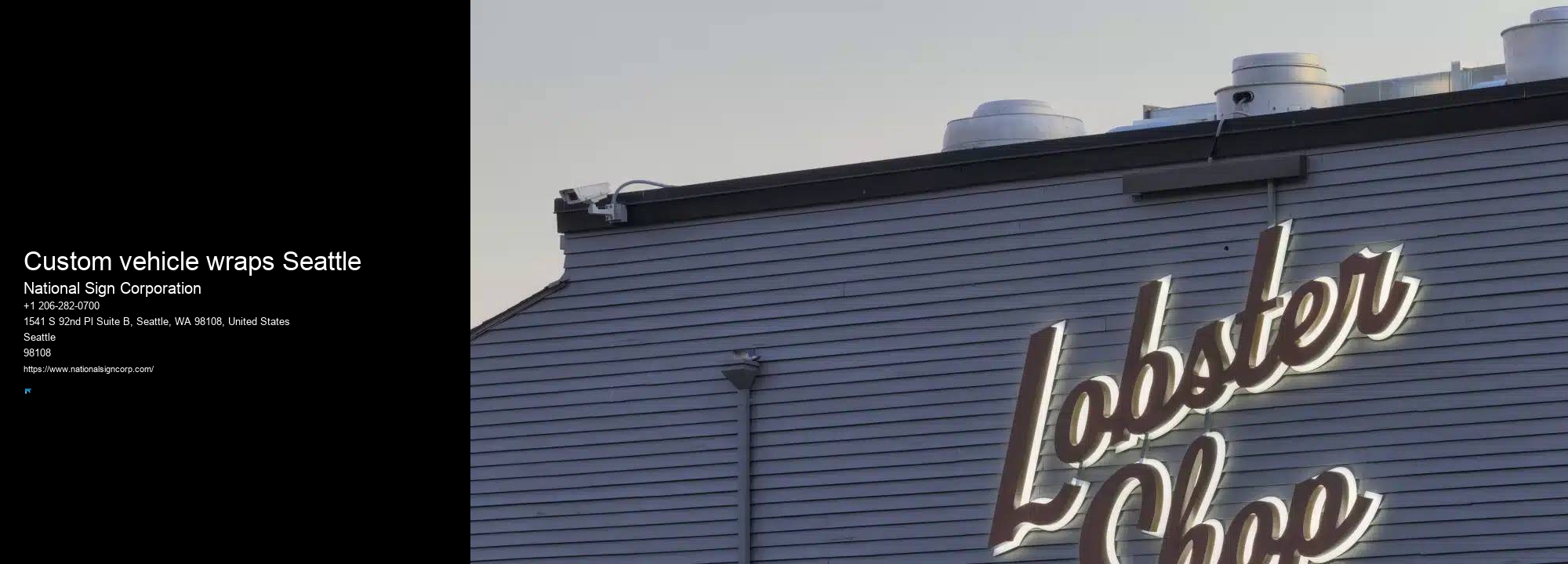

Don't worry if you're not sure what you need; they're there to guide you through every step. Learn more about National Sign Corporation here. They're equipped to handle projects of any size, whether you need a simple storefront sign or a comprehensive signage strategy for multiple locations. One restaurant owner shares how a custom, illuminated sign not only caught the eye of passersby but actually became a local landmark, driving foot traffic dramatically.
We'll also navigate any zoning or permitting requirements, ensuring your sign meets all local regulations. Custom Safety Signs This adaptability keeps your signage fresh and engaging for your audience, encouraging more foot traffic and interest in what you're offering. You've got ideas, and we've got the tools and talent to turn those ideas into reality. You'll find that our clients don't just appreciate the quality of the signage we deliver; they're also grateful for the collaborative process that leads to the final product. From towering outdoor billboards that capture the city's skyline to elegant indoor signage that enhances brand identity, we've done it all.
We start with a thorough site evaluation, considering every aspect from visibility to compliance with local regulations.
Seattle is situated on an isthmus between Puget Sound, an inlet of the Pacific Ocean, and Lake Washington. It is the northernmost major city in the United States, located about 100 miles (160 km) south of the Canadian border. A gateway for trade with East Asia, the Port of Seattle is the fourth-largest port in North America in terms of container handling as of 2021.
Moreover, they're adopting materials and processes that are more sustainable. This approach shows you can still grab attention with vibrant, dynamic signs without compromising on environmental values.
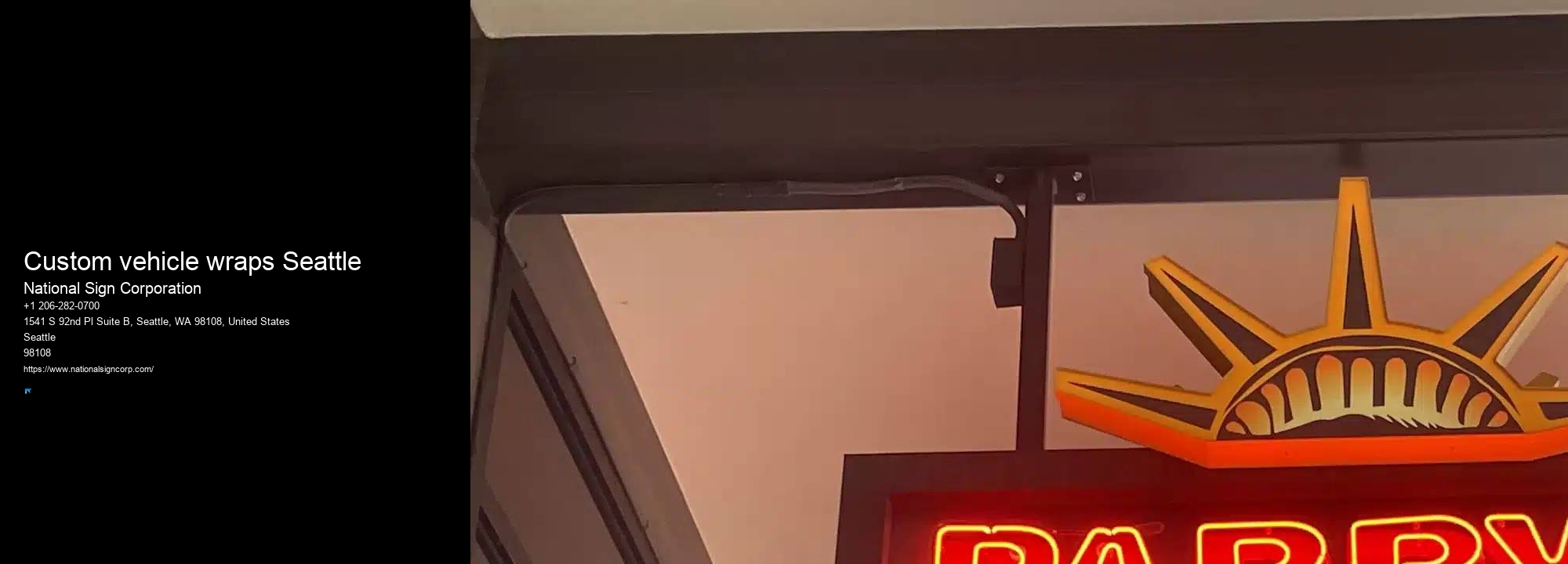

But how exactly are they achieving this? As the city's premier sign shop, they're not just crafting signs; they're creating landmarks that embody the essence of local businesses. You're involved in every step, from initial design concepts to the final installation, making sure the end product truly represents your business. Lastly, personalization is making waves.
Their user-friendly software allows for quick changes, so your messages can stay as up-to-date as your business.
You'll find their approach is as personalized as your business. With years of experience, they've mastered the art of crafting signs that make businesses pop. You'll find that materials play a significant role in reducing a sign's environmental footprint. But we don't stop at quality. You'll find that their approach is meticulous, taking into account not just the physical placement of your sign, but also how it integrates with its surroundings to catch the maximum amount of attention.
We promise to get back to you swiftly, with the same professionalism and enthusiasm we apply to all our work. Stick around to explore the stories of success and the future of signage in an era where visibility is paramount. Real Estate Signage Sustainability is another trend you can't ignore. What's clear from these testimonials is that our commitment to understanding your needs, combined with our expertise and creativity, makes a significant difference.
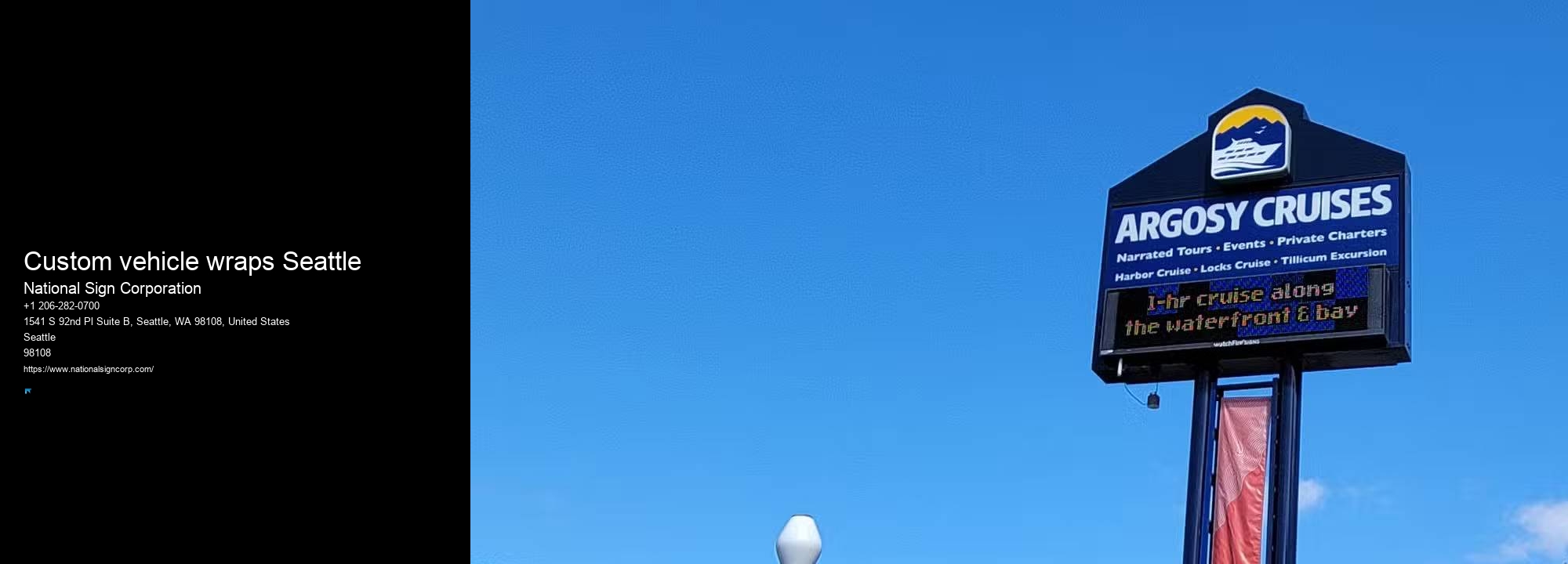
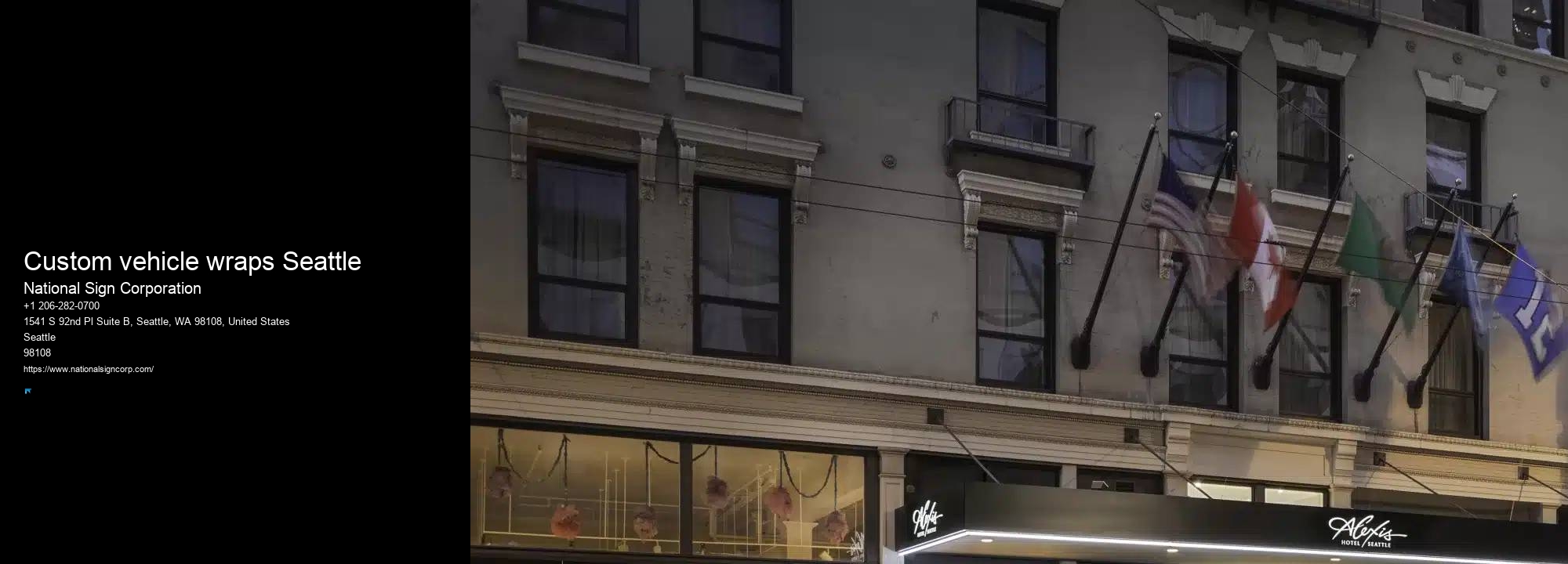
It's the essence of your business, distilled into visual and verbal elements that speak directly to the hearts and minds of those you're meant to serve. Moreover, their portfolio is a testament to their commitment to quality and creativity. They're not just keeping pace; they're setting the standard in the industry. All it takes is a call or email to set up your consultation. Stick around as we unravel the secrets behind their success, from their custom design process to the cost-effectiveness of their projects, and why Custom vehicle wraps Seattle businesses can't seem to get enough.
We see this as an extension of our commitment to excellence, not just in what we create but in how we contribute to the wellbeing of our community. This collaborative approach ensures that the final product isn't just a sign, but a strategic tool that enhances your visibility and sets you apart in a crowded market. You won't be frequently replacing bulbs or dealing with extensive wear and tear. National Sign Corporation ensures these stories aren't just heard but felt, adding layers to Custom vehicle wraps Seattle's rich cultural tapestry.
Think of them as the visual handshake between your brand and potential customers, making that first impression not just good, but unforgettable. Typically, LED and RGB lights have a lifespan that stretches into the tens of thousands of hours, ensuring your business shines bright for years. Directional Signs Energy consumption is another critical factor. They balance creativity with functionality, ensuring your sign isn't only beautiful but also durable and visible from the right angles.
Whether you're aiming for a retro vibe or a cutting-edge look, neon can bridge that gap, making your business stand out in a sea of sameness. Take, for instance, the local coffee shop that saw a 40% increase in customers within the first month of installing our eye-catching, illuminated sign. Diving into the world of signage, it's crucial to stay abreast of the latest design trends that captivate and engage your audience. Our comprehensive service package includes personalized design consultations, efficient installation, and prompt maintenance services.
You can incorporate various elements, including LED lighting, digital displays, or changeable message boards, to make sure your sign isn't only visible day and night but also communicates effectively with your target audience. Unlike traditional signage options, LEDs have a longer lifespan, ensuring your message shines bright for years to come without frequent replacements or maintenance hassles. This journey begins the moment you share your initial ideas. LED technology is known for its low energy consumption, which means you'll see a drastic reduction in your electricity bills. This not only ensures your sign's longevity but also enhances its visual appeal, making your brand shine brighter than the rest.
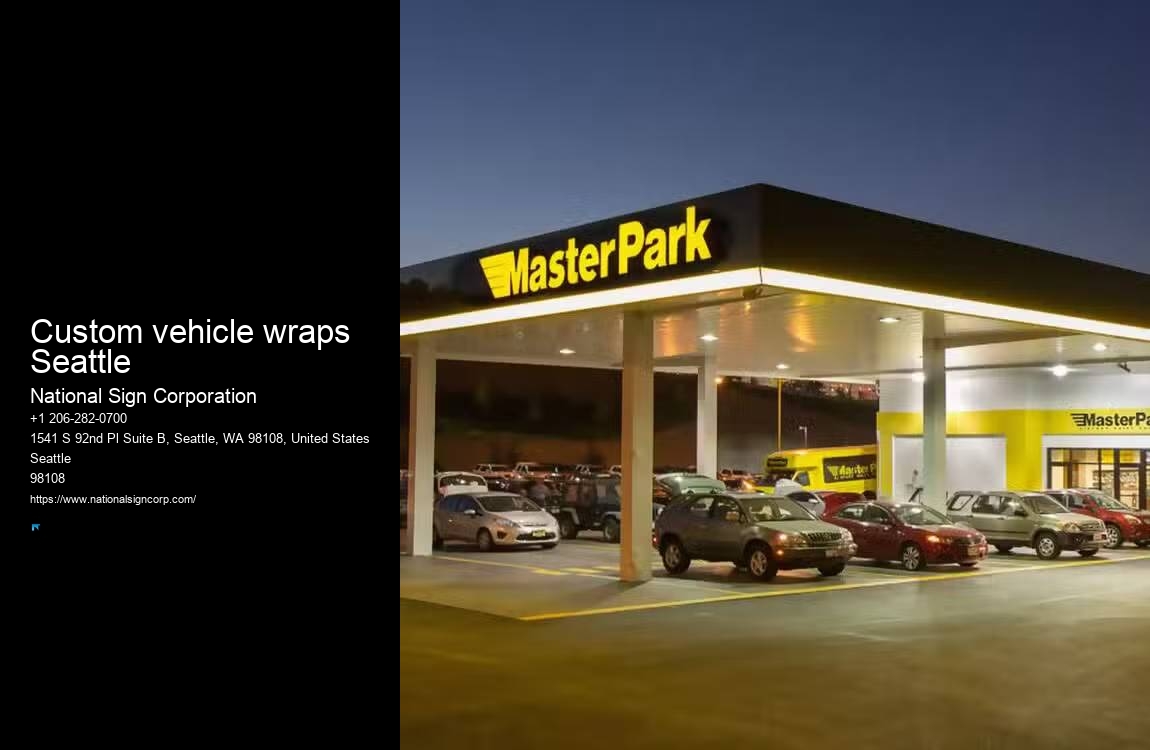



A sign is an object, quality, event, or entity whose presence or occurrence indicates the probable presence or occurrence of something else.[1] A natural sign bears a causal relation to its object—for instance, thunder is a sign of storm, or medical symptoms a sign of disease. A conventional sign signifies by agreement, as a full stop signifies the end of a sentence; similarly the words and expressions of a language, as well as bodily gestures, can be regarded as signs, expressing particular meanings. The physical objects most commonly referred to as signs (notices, road signs, etc., collectively known as signage) generally inform or instruct using written text, symbols, pictures or a combination of these.
The philosophical study of signs and symbols is called semiotics; this includes the study of semiosis, which is the way in which signs (in the semiotic sense) operate.
Semiotics, epistemology, logic, and philosophy of language are concerned about the nature of signs, what they are and how they signify.[2] The nature of signs and symbols and significations, their definition, elements, and types, is mainly established by Aristotle, Augustine, and Aquinas. According to these classic sources, significance is a relationship between two sorts of things: signs and the kinds of things they signify (intend, express or mean), where one term necessarily causes something else to come to the mind. Distinguishing natural signs and conventional signs, the traditional theory of signs (Augustine) sets the following threefold partition of things: all sorts of indications, evidences, symptoms, and physical signals, there are signs which are always signs (the entities of the mind as ideas and images, thoughts and feelings, constructs and intentions); and there are signs that have to get their signification (as linguistic entities and cultural symbols). So, while natural signs serve as the source of signification, the human mind is the agency through which signs signify naturally occurring things, such as objects, states, qualities, quantities, events, processes, or relationships. Human language and discourse, communication, philosophy, science, logic, mathematics, poetry, theology, and religion are only some of fields of human study and activity where grasping the nature of signs and symbols and patterns of signification may have a decisive value. Communication takes place without words but via the mind as a result of signs and symbols; They communicate/pass across/ messages to the human mind through their pictorial representation.


The word sign has a variety of meanings in English, including:
St. Augustine was the first man who synthesized the classical and Hellenistic theories of signs. For him a sign is a thing which is used to signify other things and to make them come to mind (De Doctrina Christiana (hereafter DDC) 1.2.2; 2.1.1). The most common signs are spoken and written words (DDC 1.2.2; 2.3.4-2.4.5). Although God cannot be fully expressible, Augustine gave emphasis to the possibility of God's communication with humans by signs in Scripture (DDC 1.6.6). Augustine endorsed and developed the classical and Hellenistic theories of signs. Among the mainstream in the theories of signs, i.e., that of Aristotle and that of Stoics, the former theory filtered into the works of Cicero (106-43 BC, De inventione rhetorica 1.30.47-48) and Quintilian (circa 35–100, Institutio Oratoria 5.9.9-10), which regarded the sign as an instrument of inference. In his commentary on Aristotle's De Interpretatione, Ammonius said, "according to the division of the philosopher Theophrastus, the relation of speech is twofold, first in regard to the audience, to which speech signifies something, and secondly in regard to the things about which the speaker intends to persuade the audience." If we match DDC with this division, the first part belongs to DDC Book IV and the second part to DDC Books I-III. Augustine, although influenced by these theories, advanced his own theological theory of signs, with whose help one can infer the mind of God from the events and words of Scripture.

Books II and III of DDC enumerate all kinds of signs and explain how to interpret them. Signs are divided into natural (naturalia) and conventional (data); the latter is divided into animal (bestiae) and human (homines); the latter is divided into non-words (cetera) and words (verba); the latter is divided into spoken words (voces) and written words (litterae); the latter is divided into unknown signs (signa ignota) and ambiguous signs (signa ambigua); both the former and the latter are divided respectively into particular signs (signa propria) and figurative signs (signa translata), among which the unknown figurative signs belong to the pagans. In addition to exegetical knowledge (Quintilian, Institutio Oratoria 1.4.1-3 and 1.8.1-21) which follows the order of reading (lectio), textual criticism (emendatio), explanation (enarratio), and judgment (iudicium), one needs to know the original language (Hebrew and Greek) and broad background information on Scripture (DDC 2.9.14-2.40.60).
Augustine's understanding of signs includes several hermeneutical presuppositions as important factors. First, the interpreter should proceed with humility, because only a humble person can grasp the truth of Scripture (DDC 2.41.62). Second, the interpreter must have a spirit of active inquiry and should not hesitate to learn and use pagan education for the purpose of leading to Christian learning, because all truth is God's truth (DDC 2.40.60-2.42.63). Third, the heart of interpreter should be founded, rooted, and built up in love which is the final goal of the entire Scriptures (DDC 2.42.63).
The sign does not function as its own goal, but its purpose lies in its role as a signification (res significans, DDC 3.9.13). God gave signs as a means to reveal himself; Christians need to exercise hermeneutical principles in order to understand that divine revelation. Even if the Scriptural text is obscure, it has meaningful benefits. For the obscure text prevents us from falling into pride, triggers our intelligence (DDC 2.6.7), tempers our faith in the history of revelation (DDC 3.8.12), and refines our mind to be suitable to the holy mysteries (DDC 4.8.22). When interpreting signs, the literal meaning should first be sought, and then the figurative meaning (DDC 3.10.14-3.23.33). Augustine suggests the hermeneutical principle that the obscure Scriptural verse is interpreted with the help of plain and simple verses, which formed the doctrine of "scriptura scripturae interpres" (Scripture is the Interpreter of Scripture) in the Reformation Era. Moreover, he introduces the seven rules of Tyconius the Donatist to interpret the obscure meaning of the Bible, which demonstrates his understanding that all truth belongs to God (DDC 3.3.42-3.37.56). In order to apply Augustine's hermeneutics of the sign appropriately in modern times, every division of theology must be involved and interdisciplinary approaches must be taken.[3]
I began doing business with National Sign back in 1989 with a relatively minor project. Their diligence and attention to detail ensured the project's success. 29 years later the two signs are still looking great and seeing them reminds me why I have chosen National to be my sole branding partner.
First off I don't like to leave reviews, but for this company I will. We are a business that has been around over 50 years looking for some bulbs to be replaced in our Honda sign. First person tells me they are way backed up which i have no problem with, and then tells me that unless i am a current customer they will not take me on, I thought businesses wanted new business, if we turned people away we would not be here, then I get transferred to a women who tells me they are 3 weeks out, no problem i say i just need them fixed, I told her the business name and she proceeds to tell me she needs address pictures of sign and a bunch of other bs stuff. I said can 't you just google us and you will see the sign and all the info she would need. She said no i can't look it up. To sum up my frustration I decided to take my business elsewhere based on this companies lazy employees not wanting to take a sec. to use the amazing tool we have called google. They are local and I wanted to support them. If I found out one of my employees had a conversation like this with a potential customer they would be fired on the spot. At the rate they are going they sure won't have a long future turning new business away. Current business always drys up and they should always be looking for new customers.
As an architect, I rely on professionals like National Sign for my projects. They are very knowledgeable, they help advise me on the very complicated codes for signage, and they are capable of integrating so many different materials: wood, metal, glass, etc... Their shop is like a workman's fantasy camp!
They use durable materials and secure installation methods to protect signs from vandalism and weather. Additionally, they might offer maintenance services to keep your sign in top shape despite any harsh conditions it faces.
When you're getting a new sign, they take care of the old one responsibly. They'll recycle or properly dispose of your outdated signage, ensuring it's done eco-friendly and in compliance with local regulations.
They ensure environmental sustainability by using eco-friendly materials and energy-efficient production methods. You'll find they recycle waste and minimize energy consumption, making their custom signs not just visually appealing but also kind to the planet.